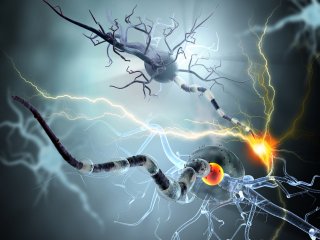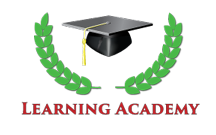
- Description
- Objectives
- Outline
- Materials
- System Requirements
- Watch a Demo
Our General Biology course intends to provide an introductory view of the concepts of biology. To start, students are introduced to the process of science and the cellular foundation of life. We dive into cell division, structure, and genetics as well as molecular biology and biotechnology. A solid framework of evolution and the diversity of life related to plants and animals is provided, as well as animal structure and function. Finally, the basics of ecology are defined and explained through real-world issues of conservation and biodiversity.
Prerequisite(s): None
After completing this course, you should be able to:
- Recall basic concepts of biology, cell structure, energy and functions
- Identify patterns of inheritance, genetics, and cell division
- Define molecular biology and the processes behind evolution
- Recognize the diversity of microbes, plants, and animals
- Recall components of body systems and community ecology
General Biology Module 1
Introduction to Biology
- Themes and Concepts of Biology
- Properties of Life
- The Process of Science
- Chemistry of Life
- The Building Blocks of Molecules
- Water
- Biological Molecules
General Biology Module 2
Cell Structure and Function
- How Cells Are Studied
- Comparing Prokaryotic and Eukaryotic Cells
- Eukaryotic Cells
- The Cell Membrane
- Passive Transport
- Active Transport
- Tonicity
General Biology Module 3
Cell Energy
- Energy and Metabolism
- Glycolysis
- Citric Acid Cycle and Oxidative Phosphorylation
- Fermentation
- Connections to Other Metabolic Pathways
- Photosynthesis
- The Light-Dependent Reactions of Photosynthesis
- The Calvin Cycle
General Biology Module 4
Cell Division
- Reproduction at the Cellular Level
- The Genome
- The Cell Cycle
- Cancer and the Cell Cycle
- Prokaryotic Cell Division
- Cellular Basis of Inheritance
- Sexual Reproduction
- Meiosis
- Errors in Meiosis
General Biology Module 5
Genetics
- Patterns of Inheritance
- Mendel’s Experiments
- Laws of Inheritance
- Phenotypes and Genotypes
- Monohybrid Cross and the Punnett Square
- Extensions of the Laws of Inheritance
General Biology Module 6
Molecular Biology and Biotechnology
- The Structure of DNA
- DNA Replication
- Transcription
- Translation
- How Genes Are Regulated
- Cloning and Genetic Engineering
- Biotechnology in Medicine and Agriculture
- Genomics and Proteomics
General Biology Module 7
Evolution and Its Processes
- Discovering How Populations Change
- Mechanisms of Evolution
- Evidence of Evolution
- Speciation
- Common Misconceptions about Evolution
- Diversity of Life
- Organizing Life on Earth
- Determining Evolutionary Relationships
General Biology Module 8
Diversity of Microbes and Plants
- Prokaryotic Diversity
- Eukaryotic Origins
- Protists
- Fungi
- The Plant Kingdom
- Seedless Plants
- Seed Plant: Gymnosperms
- Seed Plants: Angiosperms
General Biology Module 9
Diversity of Animals
- Features of the Animal Kingdom
- Sponges and Cnidarians
- Flatworms, Nematodes, and Arthropods
- Mollusks and Annelids
- Echinoderms and Chordates
- Vertebrates
General Biology Module 10
The Body’s System
- Homeostasis and Osmoregulation
- Digestive System
- Circulatory and Respiratory Systems
- Endocrine System
- Musculoskeletal System
- Nervous System
General Biology Module 11
The Immune System and Animal Reproduction
- Viruses
- Innate Immunity
- Adaptive Immunity
- Disruptions in the Immune System
- Animal Reproduction and Development
- How Animals Reproduce
- Development and Organogenesis
- Human Reproduction
General Biology Module 12
Ecology
- Population and Community Ecology
- Population Demographics and Dynamics
- Community Ecology
- Ecosystems and the Biosphere
- Energy Flow through Ecosystems
- Biogeochemical Cycles
- Terrestrial Biomes
- Aquatic and Marine Biomes
- Conservation and Biodiversity
**Outlines are subject to change, as courses and materials are updated.**
Ed4Career is committed to being both environmentally conscious and making it easier for you to study! We’re making your education mobile! All of our textbooks are now provided as eTextbooks. You can access them on your laptop, tablet, or mobile device and can study anytime, anywhere.
The move away from physical books to eTextbooks means you get the latest, most up-to-date version available. This also makes your training more accessible, so you can study anywhere you have your phone or tablet. The best part is that all materials are included in your training cost so there are NO extra fees for books!
Internet Connection
- Broadband or High-Speed - DSL, Cable, and Wireless Connections
*Dial-Up internet connections will result in a diminished online experience. Classroom pages may load slowly and viewing large audio and video files may not be possible.
Hardware Requirements
- Processor - 2GHz Processor or Higher
- Memory - 1 GB RAM Minimum Recommended
PC Software Requirements
- Operating Systems - Windows 7 or higher
- Microsoft Office 2013 or higher. Also, you could use a general Word Processing application to save and open Microsoft Office formats (.doc, .docx, .xls, .xlsx, .ppt, .pptx)
- Internet Browsers - Google Chrome is highly recommended
- Cookies MUST be enabled
- Pop-ups MUST be allowed (Pop-up Blocker disabled)
- The Kindle Reader App or VitalSource Bookshelf App are needed for many of our courses (No special equipment needed. This can be downloaded for FREE onto your computer.)
- PowerPoint Viewer (if you do not have PowerPoint)
- Adobe PDF Reader
- QuickTime, Windows Media Player &/or Real Player
MAC Software Requirements
- Operating Systems - Mac OS x 10 or higher with Windows
- Mac office programs or a Word Processing application to save and open Microsoft Office formats (.doc, .docx, .xls, .xlsx, .ppt, .pptx)
- Internet Browsers- Google Chrome is highly recommended
- Cookies MUST be enabled
- Pop-ups MUST be allowed (Pop-up Blocker disabled)
- The Kindle Reader App or VitalSource Bookshelf App are needed for many of our courses (No special equipment needed. This can be downloaded for FREE onto your computer.)
- PowerPoint Viewer (if you do not have PowerPoint)
- Adobe PDF Reader
- Apple QuickTime Media Player


